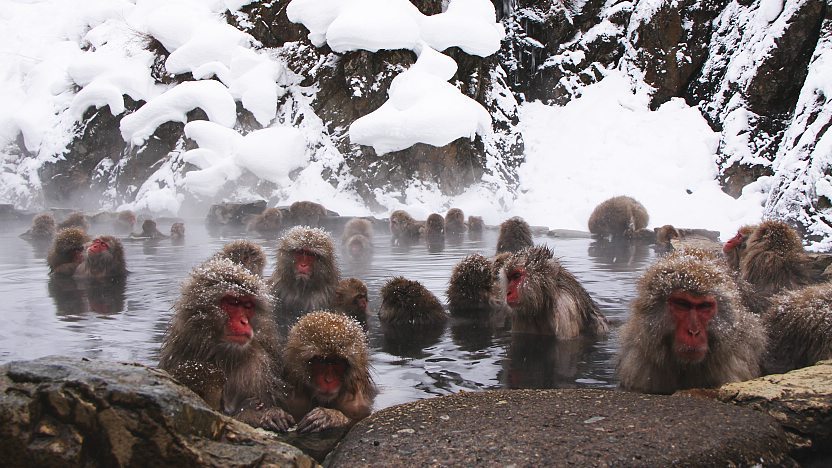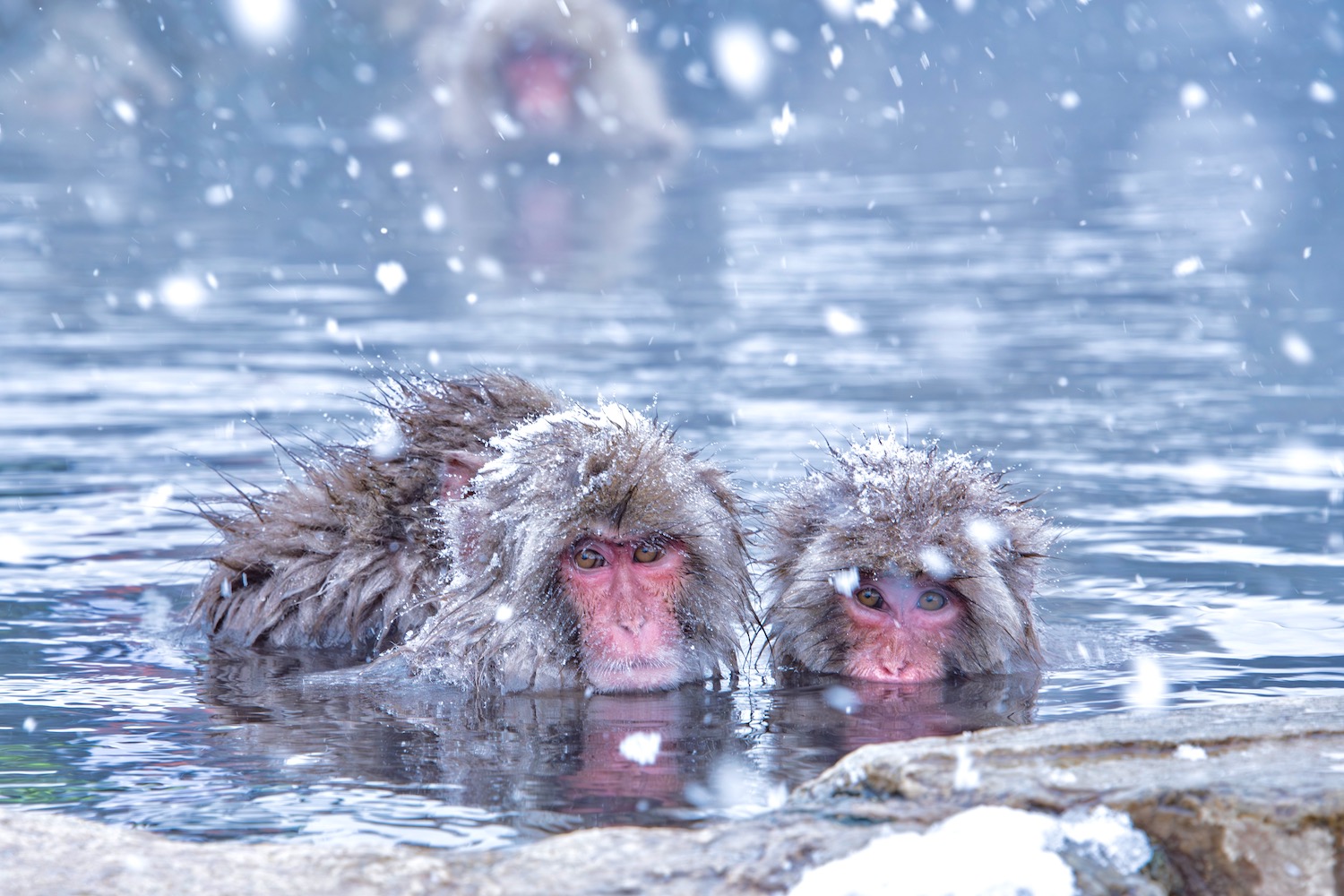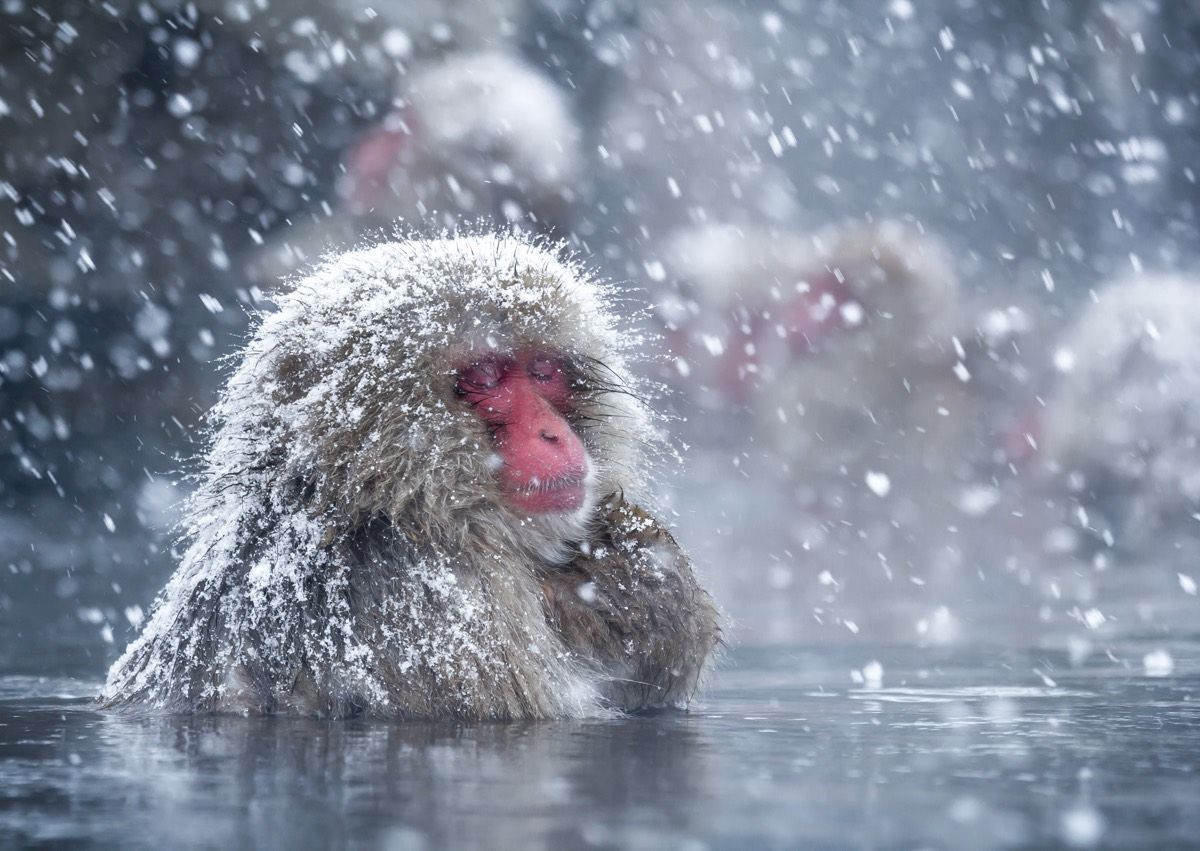Anthropology
Related: About this forumOur primate ancestors evolved in the cold--not the tropics
August 24, 2025
by Jason Gilchrist, The Conversation
edited by Gaby Clark, reviewed by Alexander Pol

Primates historically transitioned across diverse climates. Credit: Proceedings of the National Academy of Sciences (2025). DOI: 10.1073/pnas.2423833122
Most people imagine our early primate ancestors swinging through lush tropical forests. But new research shows that they were braving the cold.
As an ecologist who has studied chimpanzees and lemurs in the field in Uganda and Madagascar, I am fascinated by the environments that shaped our primate ancestors. These new findings overturn decades of assumptions about how—and where—our lineage began.
The question of our own evolution is of fundamental importance to understanding who we are. The same forces that shaped our ancestors also shape us, and will shape our future.
The climate has always been a major factor driving ecological and evolutionary change: which species survive, which adapt and which disappear. And as the planet warms, lessons from the past are more relevant than ever.
The cold truth
The new scientific study, by Jorge Avaria-Llautureo of the University of Reading and other researchers, maps the geographic origins of our primate ancestors and the historical climate at those locations. The results are surprising: rather than evolving in warm tropical environments as scientists previously thought, it seems early primates lived in cold and dry regions.
These environmental challenges are likely to have been crucial in pushing our ancestors to adapt, evolve and spread to other regions. It took millions of years before primates colonized the tropics, the study shows. Warmer global temperatures don't seem to have sped up the spread or evolution of primates into new species. However, rapid changes between dry and wet climates did drive evolutionary change.
More:
https://phys.org/news/2025-08-primate-ancestors-evolved-cold-tropics.html
stopdiggin
(15,171 posts)I'm wondering if this will find any kind of affirmation and consensus .. ?
FirstLight
(15,771 posts)North America! wow...I'd love tohear my Evolutionary Anthropology professor's take on that!
MrWowWow
(1,461 posts)Unfortunately, bones don't come labeled...Probably what keep me away from Physical Anthropology as a career field.
Note:
There are older primates on the hominin line than Lucy. The oldest widely accepted is Sahelanthropus tchadensis (~7 million years ago), which lived shortly after the split between humans and chimpanzees.
Judi Lynn
(164,067 posts)Last edited Mon Aug 25, 2025, 12:49 AM - Edit history (1)
By Joshua Mellin, CNN
5 min read
Updated 6:32 AM EST, Mon December 9, 2019

CNN
—
The Japanese macaques in Jigokudani Monkey Park begin most days with a relaxing dip in their own private hot tub.
Located in Joshinetsu Kogen National Park in Japan’s Nagano prefecture, the primate-only onsen is world-famous as the preferred simian hot spring.
But life hasn’t always been so simple for the snow monkeys of Jigokudani (“The Valley of Hell,” named for its natural hot springs). They were initially forced from their habitat in the 1950s by the development of nearby ski resorts.
As a result, they moved into nearby towns and quickly found trouble, raiding fruit from local farmers’ orchards. The farmers petitioned the government and were granted the right to hunt the animals.
More:
https://www.cnn.com/travel/article/snow-monkeys-hot-springs-japan




Snow Monkeys Love Hot Baths Just Like Humans Do, and Now We Know Why
By Rachael Rettner published April 4, 2018
Japanese macaques, or "snow monkeys," have been spotted taking baths in man-made hot springs during winter for decades. Now, researchers have discovered exactly why the monkeys do this.
The results are not exactly Earth-shattering: The monkeys are cold.
But the researchers also found that indulging in a hot-spring bath may lower the monkeys' levels of biological stress.
"This indicates that, as in humans, the hot spring has a stress-reducing effect in snow monkeys," study lead author Rafaela Takeshita, of Kyoto University in Japan, said in a statement. "This unique habit of hot spring bathing by snow monkeys illustrates how behavioral flexibility can help counter cold-climate stress," Takeshita said. [Image Gallery: Sneezin' Snub-Nosed Monkeys]
The study was published Tuesday (April 3) in the journal Primates.
Japanese macaques (Macaca fuscata) live the farthest north of any species of nonhuman primate in the world. They are especially adapted to living in the cold; they grow thicker and longer fur in the winter.
More:
https://www.livescience.com/62213-why-snow-monkeys-take-hot-baths.html
LearnedHand
(5,294 posts)I’m a cold climate person through and through, and I loathe the muggy tropical climate.
Permanut
(8,135 posts)It had been thought by some anthropologists that we might be descended from ramapithecus, of which bone fragments have been found in northern India, about 30 degrees north latitude. They would have existed some twelve million years ago.
Not in the tropics, so maybe ramapithicus is still a viable candidate for our ancestors.
Thanks for another cool piece of the homo sapuens puzzle, Judi Lynn.
rampartd
(4,244 posts)the point of the article was the "mosaic" evolution of several australopithecine and homo species, all living and interbreeding in the same Pleistocene eden.
that could well include bipedal brachiators and semi aquatic waders and adaptations to heat and cold.
